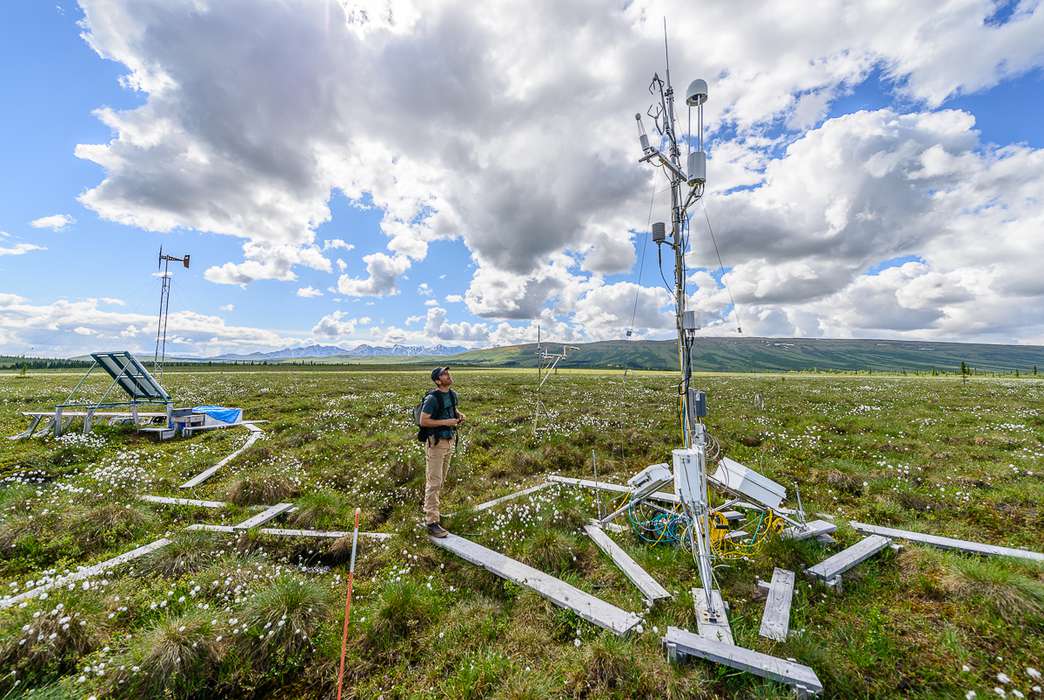COVID-19 could curtail global innovation for nearly a decade
The pandemic may put innovation behind for years to come. (Unsplash/National Cancer Institute)
Innovation from new research and patents may be slowed for seven years because of the COVID-19 pandemic, according to a new study that draws on data from previous pandemics over the past century.
The paper, published online March 9 by International Review of Financial Analysis, is among the first of its kind in a growing body of research to look at the long-term effects of pandemics on research productivity.
In the last century, the world faced several pandemics that resulted in at least 100,000 deaths, and in the aftermath of each, there was a significant decline in research productivity, the researchers said. The ongoing coronavirus pandemic has already claimed the lives of more than 2.6 million people, according to the World Health Organization, and devastated economies worldwide.
"Thankfully, pandemics like this don't happen every couple years, but they aren't new," Thanos Verousis, a professor of business at the University of Essex, told The Academic Times. "We looked at past pandemics to see what we could learn about the shock to innovation activities."
The research focused on countries in the economic Group of Seven: Canada, France, Germany, Italy, Japan, the United Kingdom and the United States. Using patent data from the European Patent Office's Worldwide Patent Statistical Database, Verousis and his coauthors tracked the number of successful patent applications in each country from 1900 to 2012. In that time, the world was hit with an encephalitis pandemic, Spanish, Asian, and Hong Kong flus, HIV/AIDS and the H1N1 virus. HIV/AIDS, however, was excluded from this study as that pandemic is still ongoing; according to WHO, 690,000 people died of HIV-related illnesses worldwide in 2019.
Using local projection estimator models, the researchers were able to see both the short- and long-term impacts of these pandemics on successful patent applications in the manufacturing, construction and information and communication industries.
In the first four years after the start of each pandemic, countries saw no significant changes to successful patent applications. This wasn't particularly surprising to the researchers, as it often takes several years to see the results of research and development investments. The continued output was due to research that had taken place in the years immediately preceding the pandemics.
After that relative stability, however, the number of patents being approved sharply declined, and it took about seven years in total after the pandemic began for innovation to reach pre-pandemic levels. Additionally, researchers found that the longer the pandemic, the greater the toll on innovative output.
"When we started I didn't think it would take that long for innovation to recover, but it's a very consistent result," Verousis said. "Whatever we did to the data, seven years to recover was the result."
The information and communication technology sector, which is heavily dependent on research productivity, is typically the hardest hit by this decline in innovation, whereas industries such as manufacturing and construction are better able to weather the shocks of the pandemic.
Global policymakers should take steps to remedy this loss of innovation as they shape their post-COVID recovery plans, Verousis said. For example, the U.K., which has been among the hardest-hit by research declines in the past, has launched the Future Fund, a GBP 1 billion support package for innovative research firms and businesses. More programs like that will be needed to offset the losses nations are likely to experience in the next decade, according to Verousis.
This pandemic is also an opportunity for the global economy to "build back better," as prior research has shown. In order to do so, it's important that policymakers take proactive steps to drive productivity, said Verousis. This could take the form of more financial support for the hardest-hit industries as well as improvements to the patent approval process.
"We will be more efficient in recovery if we target this problem," he said. "When innovation grows, the economy grows. It's as simple as that."
The study "The road to economic recovery: Pandemics and innovation," set to be published in the May 2021 issue of International Review of Financial Analysis, was authored by Thanos Verousis and Lipeng Wang, University of Essex; and Mengyu Zhang, University of Kent.









